How to cook red cherry by hand & red honey to treat red cherry coffee beans
In the front street cafe, a dazzling variety of coffee menus, Ethiopia's Yega Sheffield has always been loved by every coffee lover. On the menu bar in Ethiopia, red honey red cherries and sun red cherries written in the first and second line are particularly eye-catching. This time Qianjie Coffee will talk about what is red cherry and what is the difference in the flavor of red cherry coffee with different treatments.
Yejia Xuefei
Located in the highland of Sidamo, Ethiopia, at an altitude of 2,000 meters, Yega is one of the highest coffee-producing areas in Ethiopia. The coffee produced here is called yirga cheffe. "yirga" means to settle down, and "cheffe" means "wetland", so it originally means "let us settle down in this wetland". The town is located on the east side of the East African Rift Valley.

Red Cherry Project
The "Red Cherry Project" (ORC) is a project to improve the quality of small-scale farms. In 2007, Trabocca, the largest raw bean manufacturer in the Netherlands, proposed the "Red Cherry Project" in pursuit of high-quality Essex beans.
The plan requires that raw coffee beans should be picked not only by red fruit, but also by hand, but this is only the most basic requirement, and the plan is far from simple. The main purpose is to encourage soybean farmers and surprise roasters. Trabocca, the largest coffee bean manufacturer in the Netherlands, invited all Ethiopian farms to produce small batches of beans of about 1500 to 3000 kilograms (25,50 bags) before the harvest season. Women can only choose fully 100% ripe red cherries, which makes a big difference in the flavor of brewed coffee. So careful-eyed and industrious Ethiopian women are important drivers of the Red Cherry project.
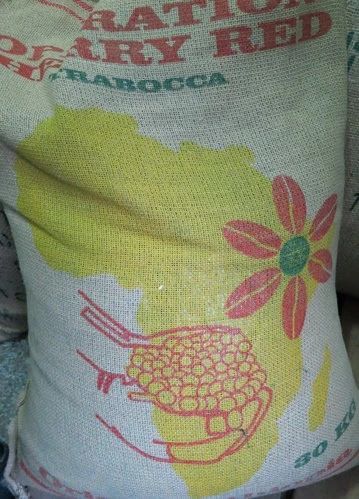
The red cherry project is also a reinforcing method, which makes the farm pay more attention to the process of selecting beans. The prices of these coffee are also relatively high. Red cherry operations include washing, sun-drying beans, half-washing, half-sun, experimental coffee and so on. The main producing areas are Yegashifi, Sidamo, Penga Forest, Lekanti, Ken Bata, Iruba, Hara, Lim, etc., and joined the Coroja Golocha producing area in 2011 (near Harald). These are unique flavors and can fully show the flavor of Ethiopian coffee. Trabocca will choose from the coffee after receiving it. Farms that have passed cup quality tests conducted by offices in Ethiopia and the Netherlands will pay large bonuses. Trabocca, the promoter of the Red Cherry project, has invested all the profits made over the past few years in cooperative farms.
What is sun treatment and what is red honey treatment?
Sun Yega Chuefei has strict harvest standards. Before the fruits are exposed to the sun, the unripe green fruits or defective fruits are removed manually, and the damaged or moldy fruits are removed again in the process of sun exposure. Two weeks later, when the sugar and essence of the pulp all seep into the coffee beans, and the water content is reduced to 12%, the hardened pulp, pectin layer and pods are scraped clean with a planer, and the coffee beans taken out have to be tested for density and color to eliminate the defective beans. Then the workers pick out the defective beans with the naked eye and screen them layer by layer. Therefore, the obtained coffee beans are fine, ensuring their cleanliness and vulgarity, and with a strong and charming fruit quality.
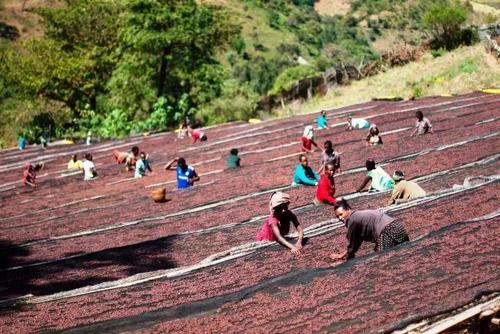
The so-called honey treatment refers to the process of making raw beans with mucous membrane for sun-drying. After the outer pulp of the coffee bean is removed, there will be a layer of sticky jelly. The traditional washing method washes it away with clean water, but this direct drying method has been born because of the limitations of water resources in some high-altitude areas. Pectin mucous membrane is the part with the highest content of coffee fructose, and it is also an important part of coffee fermentation. It can be said that 80% of this part determines the supply of nutrients in the process. Yellow honey retains 60% pectin, red honey retains 75% pectin, and black honey hardly removes pectin.
On behalf of coffee beans-Qianjie Coffee Ethiopia Yega Xuefei Sun Red Cherry & Red Honey Red Cherry
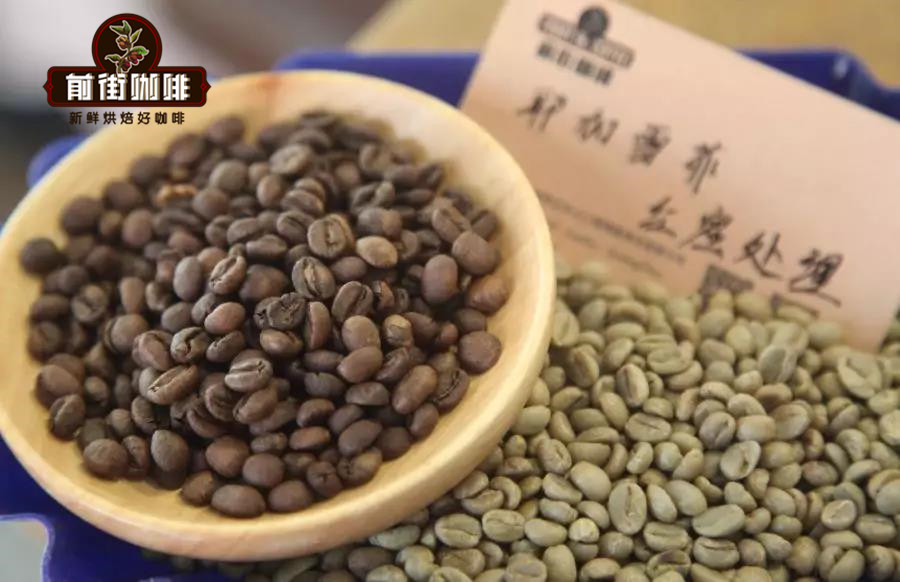
Producing area: Yega Xuefei idido
Planting altitude: 2000-2200m
Treatment method: red honey treatment
Variety: native species
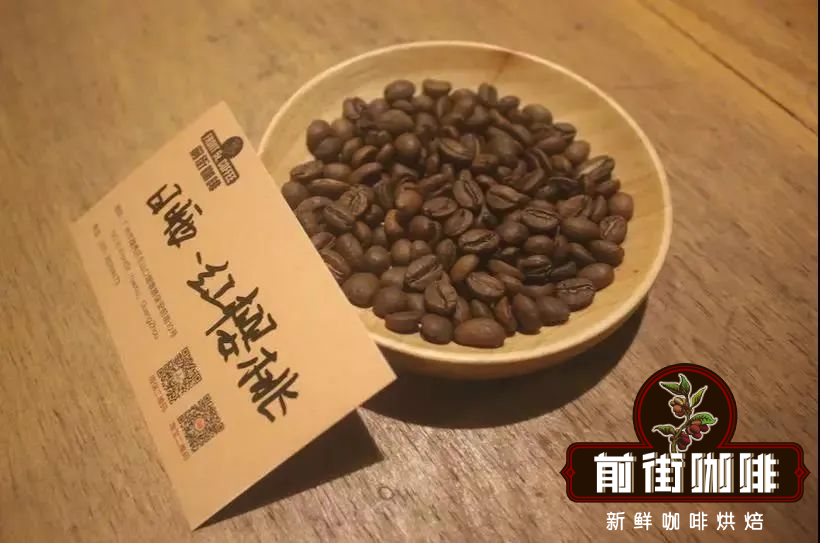
Producing area: Aletaland Manor Yegashifi
Planting altitude: 1700-2200m
Treatment method: sun treatment
Variety: Ethiopian native species
Baking suggestion & cooking temperature
When roasting two types of red cherry coffee beans in Qianjie Street, in order to retain more of the sour characteristics of citrus and berries in Yegashiffe, and to better show the fermentation feeling of sun treatment and the sweetness of red honey treatment, Qianjie roasters used medium-light roasting of these two types of coffee. The suggestion for shallow baked beans is 90-91 ℃. The aroma and acidity of shallow baked beans can be extracted with higher water temperature, because the quality of shallow baked beans is hard, and increasing water temperature can increase the extraction efficiency of coffee powder and avoid unpleasant flavors such as acidity.
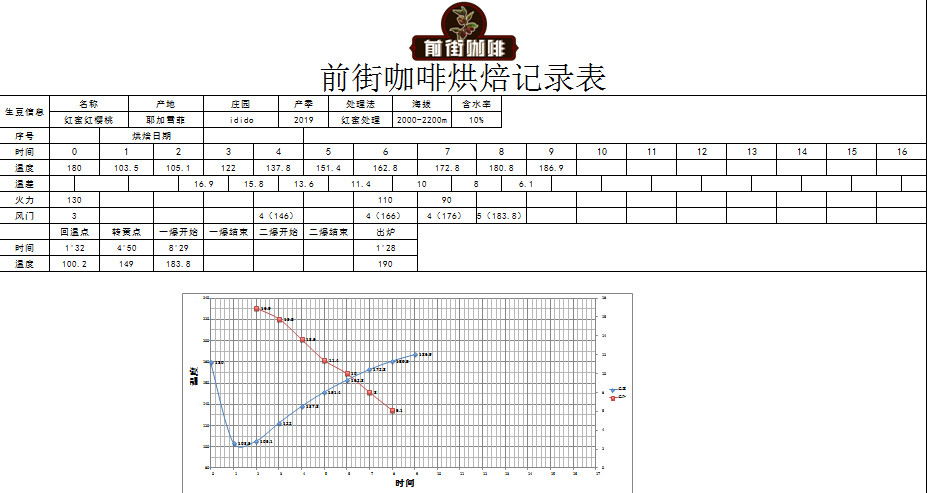
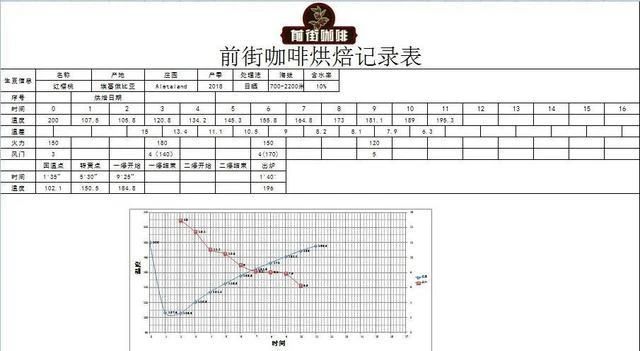
How to brew two red cherries in Qianjie Coffee
Qianjie Coffee uses Hario V60 filter cup when brewing beans from Yega Chuefei area. V60 tapered filter cup mouth is relatively large, coupled with its unique spiral curve ribs, so that the air can be discharged more easily to improve the extraction quality. The taste may not be thick enough, but its high concentration of sweet and sour and obvious aroma is a major feature of it.
Qianjie cooking parameters:
Water temperature: 90-91 degrees
Powder content: 15g
Degree of grinding: degree of grinding of fine sugar
Qianjie cooking technique: the first section is filled with 30 grams of water for 30 seconds, followed by 95 grams (the electronic scale shows that about 125 grams), and the injection is completed in about 1 minute. When the water level drops to 2 grams in the powder layer, the remaining 100 grams are injected at 3 places (about 225 grams shown by the electronic scale), about 1 minute and 40 seconds. The drip filtration is completed in 1 minute and 55 seconds. Remove the filter cup and complete the extraction.
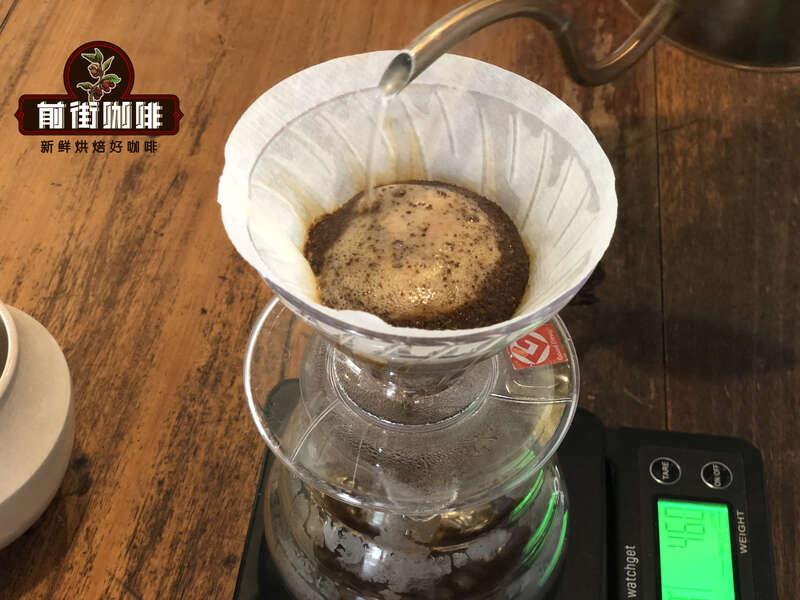
Sun red cherry flavor: lemon, licorice, citrus, berries, sweet orange, the overall sweetness is high, Huigan has the flavor of caramel and cream, with black tea aroma.
Red honey red cherry cooking flavor: it smells of ginger flowers, citrus, lemon and fruit sugar in the mouth, Cunninghamia lanceolata in the middle, honey sweetness in the middle, oolong tea in the end and long-lasting cream finish.
Important Notice :
前街咖啡 FrontStreet Coffee has moved to new addredd:
FrontStreet Coffee Address: 315,Donghua East Road,GuangZhou
Tel:020 38364473
- Prev
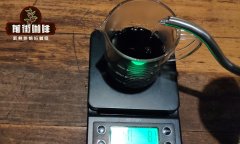
What is By pass theory? What factors should be paid attention to when using bypass coffee brewing?
The word ByPass may be rare in coffee expressions, but it often occurs in practical applications. Most of the time, it is simply understood as mixing the brewed coffee with the right amount of pure water. Is it really that simple? In this issue, baristas are going to talk about ByPass. ByPass is
- Next
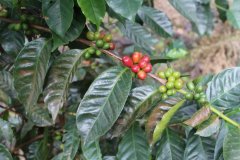
Washed rose summer and sun rose summer Panama Emerald Manor Washed rose summer and sun rose summer flavor difference
In front street coffee, rose summer this variety always attracts the attention of customers. Many of the new coffee pit friends did not hear their names first, sitting in front of the bar pulling the barista on the front street to understand the characteristics of the beans in Guixia, and the barista on the front street patiently answered each customer's questions. Rosedale coffee beans on the front street, from Ethiopia, Panama, Costa Rica
Related
- Beginners will see the "Coffee pull flower" guide!
- What is the difference between ice blog purified milk and ordinary milk coffee?
- Why is the Philippines the largest producer of crops in Liberia?
- For coffee extraction, should the fine powder be retained?
- How does extracted espresso fill pressed powder? How much strength does it take to press the powder?
- How to make jasmine cold extract coffee? Is the jasmine + latte good?
- Will this little toy really make the coffee taste better? How does Lily Drip affect coffee extraction?
- Will the action of slapping the filter cup also affect coffee extraction?
- What's the difference between powder-to-water ratio and powder-to-liquid ratio?
- What is the Ethiopian local species? What does it have to do with Heirloom native species?

